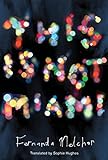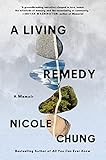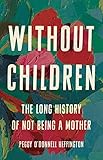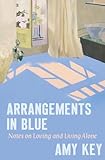We wouldn’t dream of abandoning our vast biannual Most Anticipated Book Previews, but we thought a monthly reminder would be helpful (and give us a chance to note titles we missed the first time around). Here’s what we’re looking out for in April:
 This Is Not Miami by Fernanda Melchor, translated by Sophie Hughes
This Is Not Miami by Fernanda Melchor, translated by Sophie Hughes
Taking place in and around the Mexican city of Veracruz, this collection of crónicas—narrative nonfiction pieces that blend reportage with novelistic structures—explores the criminal underworld, shedding light on social problems that manifest in gory headlines. As in her novels Paradais and Hurricane Season, Melchor draws empathetic portraits of deeply unsympathetic figures, forcing her readers to understand the mindsets of monstrous characters. —TB
 Chain Gang All-Stars by Nana Kwame Adjei-Brenyah
Chain Gang All-Stars by Nana Kwame Adjei-Brenyah
Ever since the moment I finished Adjei-Brenyah’s surreal, satirical, and original debut story collection, Friday Black, I’ve been not-so-patiently waiting for whatever he wrote next. In his upcoming debut novel, two female gladiators fight to the death for their freedom on the hugely popular and controversial TV show, Chain-Gang All Stars, which airs on CAPE (Criminal Action Penal Entertainment). With his sharp eye for satire and reverence for humanity, Adjei-Brenyah’s latest explores the exploitation, violence, and false promises of the prison industrial complex, capitalism, and the country itself. —CQ
 A Living Remedy by Nicole Chung
A Living Remedy by Nicole Chung
Chung’s bestselling memoir All You Can Ever Know, published in 2018, cemented her as one of this generation’s great chroniclers of family, both adoptive and biological: its limits and possibilities, what it means, how it shapes us. Her follow-up, which follows Chung as she mourns her parents and navigates the institutional inequities baked into American society, promises to be just as poignant. Blurbers Megha Majumdar, Julie Otsuka, Imani Perry, and Bryan Washington certainly think so. —SMS
 Sea Change by Gina Chung
Sea Change by Gina Chung
Chung’s debut centers on thirty-something Ro who feels stalled in her life—heartbroken after a breakup, father missing, mother remote, friends drifting away. She’s also stagnating at her job at a mall aquarium, where one of her favorite sea creatures (and last remaining link to her father), an octopus named Dolores, is about to be sold to a wealthy investor intent on moving her to a private collection. Joseph Han called Ro one of his favorite Korean American characters of all time. —MML
 The One by Julia Argy
The One by Julia Argy
Argy’s debut novel, about a woman who’s a contestant on a Bachelor-style dating reality show, has garnered some killer blurbs. Julie Buntin writes, “I could not stop reading Julia Argy’s smart, funny, and tender debut novel about falling in love and finding oneself on and offscreen,” and Claire Messud calls it “riveting, astute and darkly comic.” —EL
 Without Children by Peggy O’Donnell Heffington
Without Children by Peggy O’Donnell Heffington
As a mother of three myself, I’m interested in why people become parents—or don’t. In Without Children, Heffington, a historian of gender, explores the long history of women who did not become mothers, for a variety of reasons. Situating what seems to some to be a modern phenomenon within a larger historical context, this one seems like an essential read. Ada Calhoun deems it a “timely, refreshingly open-hearted study.” —EL
 Arrangements in Blue by Amy Key
Arrangements in Blue by Amy Key
An essay collection about unpartnered life set to the soundtrack of Joni Mitchell’s Blue—so thoughtful of Amy Key to write a book specifically and exclusively for me! Looking back at her past romantic longings and collisions, Key considers the (inflated?) value of romantic love and finds her contradictory feelings on the matter reflected in Mitchell’s lyrics. There’s nothing poor-me about Arrangements in Blue; in Key’s hands, solitary life becomes more capacious—and more complicated—than I ever thought possible. —SMS
 The Ugly History of Beautiful Things by Katy Kelleher
The Ugly History of Beautiful Things by Katy Kelleher
In this deeply researched collection of essays, Paris Review contributor Katy Kelleher explores the hidden histories of our favorite luxury goods, revealing how even the most beautiful objects have dark, unsavory backgrounds. In a blend of historical, scientific and autobiographical writing, Kelleher explains why some red lipstick contains beetle shells, why certain perfumes include rodent musk, and why a fancy class of dishware is made with the ashes of cow bones. Along with helping us understand how these objects came to signify beauty, Kelleher reveals the price workers pay to bring them to us – and suggests a few ways we can ethically appreciate their products. —TB
 Momfluenced: Inside the Maddening, Picture-Perfect World of Mommy Influencer Culture by Sara Petersen
Momfluenced: Inside the Maddening, Picture-Perfect World of Mommy Influencer Culture by Sara Petersen
Though I don’t have children yet, I follow many “Momfluencers” on Instagram, and even I, a childless millennial, have been made to feel inferior, jealous, and/or influenced by their immaculate homes and clean, neutral aesthetics, so I can only imagine how moms feel while scrolling. In her debut book, Peterson explores the ways that “momfluencer culture” glorifies, markets, and sells a version of motherhood that largely does not exist. About the book, Rachel Yoder writes: “For women disappeared by the Cult of Domesticity, Momfluenced opens up the possibility of self-reclamation with a passionately conceived deep dive into modern motherhood as performance, commodity, and fantasy.” —CQ
 Greek Lessons by Han Kang (translated by Deborah Smith and Emily Yae Won)
Greek Lessons by Han Kang (translated by Deborah Smith and Emily Yae Won)
The newest novel by International Booker winner Kang (The Vegetarian) follows the friendship of a student—who has lost her voice—and a teacher—who is losing his sight—that blossoms over Greek language lessons. Drawn together by their profound, personal losses, they try to find a way to translate their individual pain into something they can not only understand but move through. Katie Kitamura says, “Han Kang is a writer like no other. In a few lines, she seems to traverse the entirety of human experience.” —CQ
 Fire Rush by Jacqueline Crooks
Fire Rush by Jacqueline Crooks
Longlisted for the Women’s Prize for Fiction, Cook’s debut novel follows Yamaye, a young Jamaican woman living in 1980s London, who spends her nights with friends in underground dub clubs. In these dark, smoky rooms, she loses herself in the music, feels her ancestors press close, and falls in love. When a brutal act of violence upends her life, Yamaye leaves London and eventually makes her way to Jamaica, where she grapples with the grief and loss of the past and present. A starred review in Publishers Weekly calls the debut “a triumph.” —CQ
 The Weeds by Katy Simpson Smith
The Weeds by Katy Simpson Smith
The newest novel by Smith (The Everlasting) follows two unnamed women who are cataloging the flora of the Roman Colosseum more than a century apart. In 1854, a woman indentured to English botanist Richard Deakin catalogs hundreds of species while grieving her freedom and the loss of her lover to a man. In 2018, an adrift graduate student from Mississippi compares the plants of current day against Deakin’s catalog. About the novel, Laird Hunt says: “Strange, moving, and marvelously alive, The Weeds works―like the eponymous flora that fills its pages―with subtle insistence and exuberant power to unfurl its ingeniously twinned stories of injustice, heartbreak, desire, and hope.” —CQ
 A Cowardly Woman No More by Ellen Cooney
A Cowardly Woman No More by Ellen Cooney
In her funny and strange new novel, Cooney (One Night Two Souls Went Walking) follows Trisha Donahue, a loyal, 44-year office worker, over the course of one seemingly-ordinary turned extraordinary day. When she’s overlooked for a long overdue promotion, Trisha attends her company’s annual banquet at a local restaurant that may or may not have been hit by a comet—and finds herself making a series of unexpected and life-changing decisions. Publishers Weeklys’ starred review says: “This elegant and off-kilter upending of the office novel sings.” —CQ
 Blue Hour by Tiffany Clarke Harrison
Blue Hour by Tiffany Clarke Harrison
Harrison’s delicate and devastating debut novel packs a lot of punch into 160 pages. The novel’s unnamed narrator is a 34-year-old Black and Japanese photographer and teacher who is struggling with infertility and its rippling effect on her marriage to her Jewish husband, Asher. When her Black photography student Noah is shot by police, the protagonist reconsiders motherhood all together–which is, of course, when she discovers she’s pregnant. Harrison’s first novel isn’t even out yet and I’m already anxiously awaiting what she will do next. —CQ
 The All-American by Joe Milan Jr.
The All-American by Joe Milan Jr.
Seventeen-year-old adoptee Bucky Yi has his sights solely set on being a college football player when his life is forever changed by the U.S. government’s decision to deport him. An outsider in his own birth country, Bucky must find a way to not only survive but thrive in a place absolutely foreign to him. Jean Chen Ho calls Milan’s debut “a potent, spellbinding novel about the meaning of family and the pull of home,” and Milan “a writer with guts and talent.” —CQ
 Enter Ghost by Isabella Hammad
Enter Ghost by Isabella Hammad
The sophomore novel by National Book Foundation 5 Under 35 Honoree Hammad (The Parisian) follows actress Sonia Nasir as she makes a return to her familial homeland of Haifa, Israel. While there, she meets a local director named Mariam who casts her in a West Bank production of Hamlet. As they creep closer to opening night, the violent reality of existing in present-day Palestine offers itself to Sonia and her castmates. Namwali Serpell writes: “A moving and important novel that presses upon the urgent question of how we ought to live in the midst of the rubble (and ongoing chaos) of political crisis.” —CQ
 Hit Parade of Tears by Izumi Suzuki (translated by Sam Bett, David Boyd, Daniel Joseph, and Helen O’Horan)
Hit Parade of Tears by Izumi Suzuki (translated by Sam Bett, David Boyd, Daniel Joseph, and Helen O’Horan)
A new collection of eleven short stories from the late Suzuki (1949–1986), the author of cult favorite Terminal Boredom and a pioneer of Japanese science fiction. Blurring together magic, fantasy, and sci-fi, the stories bend reality to explore themes of marriage, friendship, love, sexuality, and femininity. About the collection, Kirkus says: “This collection reaches out from the past not as a warning so much as the musings of a writer grasping for hope in a dark world.” —CQ
 Losing Music by John Cotter
Losing Music by John Cotter
In this memoir, Cotter details his experience with Ménière’s disease, the onset of which was characterized by a ringing in the ears, then partial deafness, then debilitating dizziness an vertigo. Through his own account, Cotter reflects on the challenges and complexities of disability, as well as the limits of medical science and the allure of meaning-making. Hanif Abdurraqib calls it “a stunning, expansively beautiful book.” —SMS
Want to know about the books you might have missed? Then go read our most recent book preview. Want to help The Millions keep churning out great books coverage? Then sign up to be a member today.









